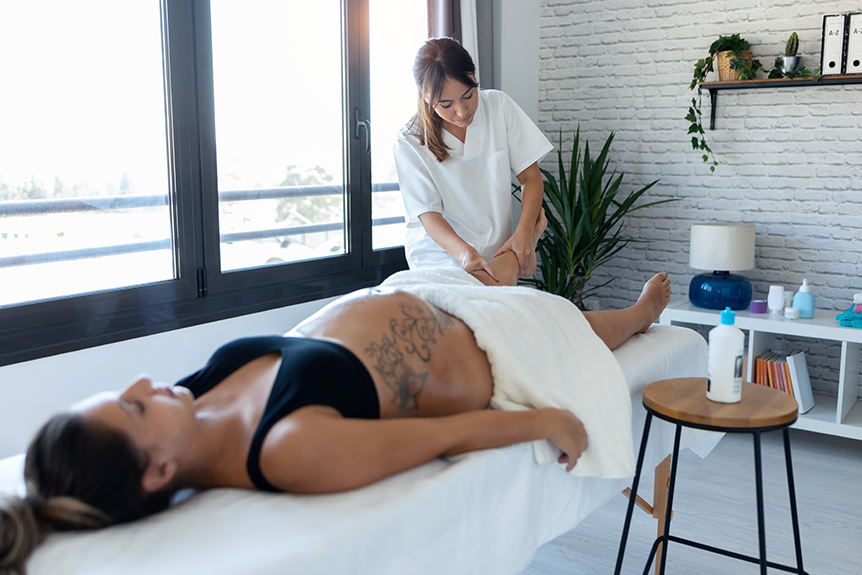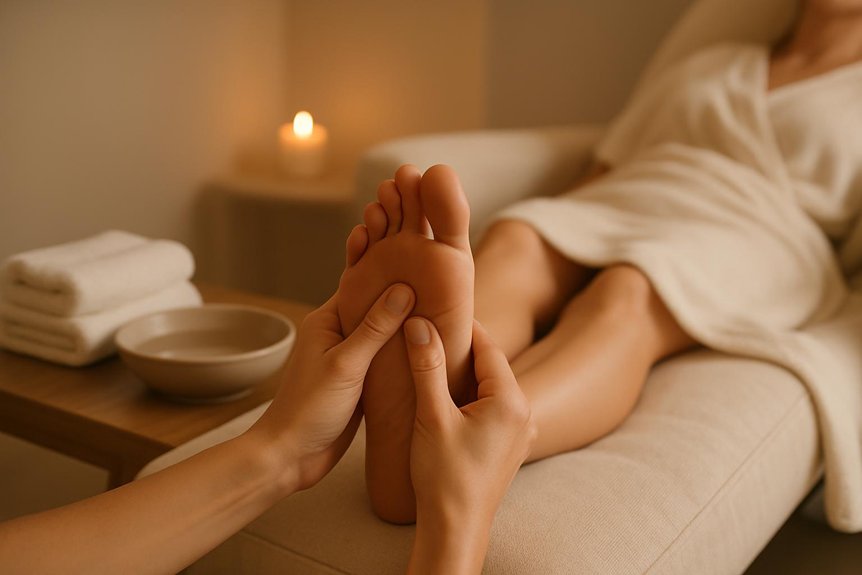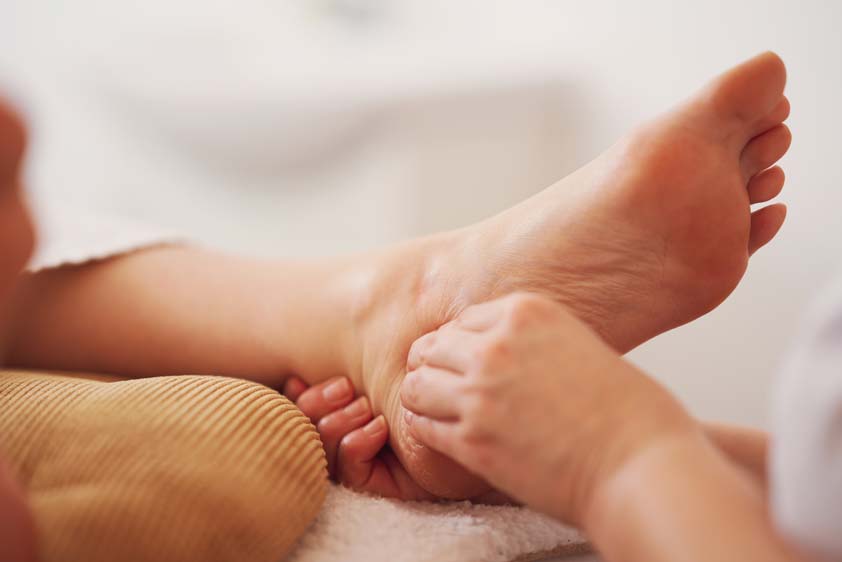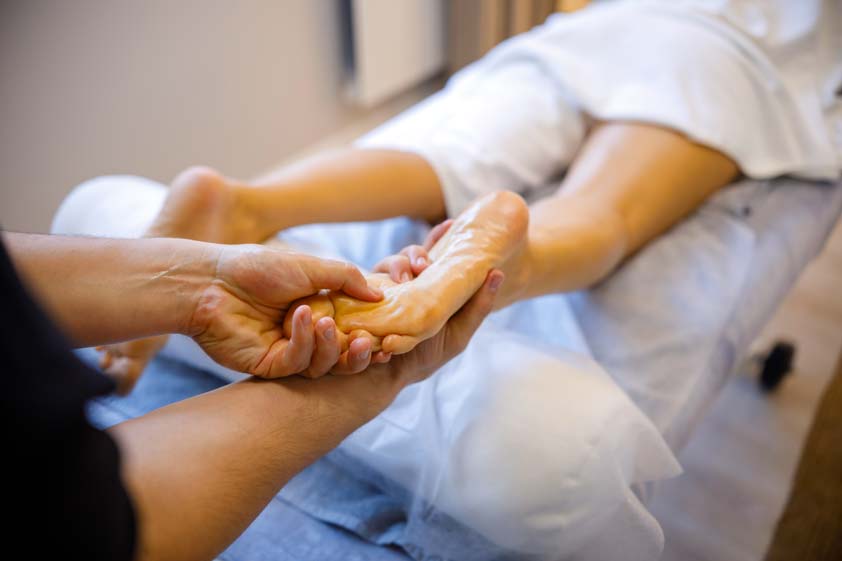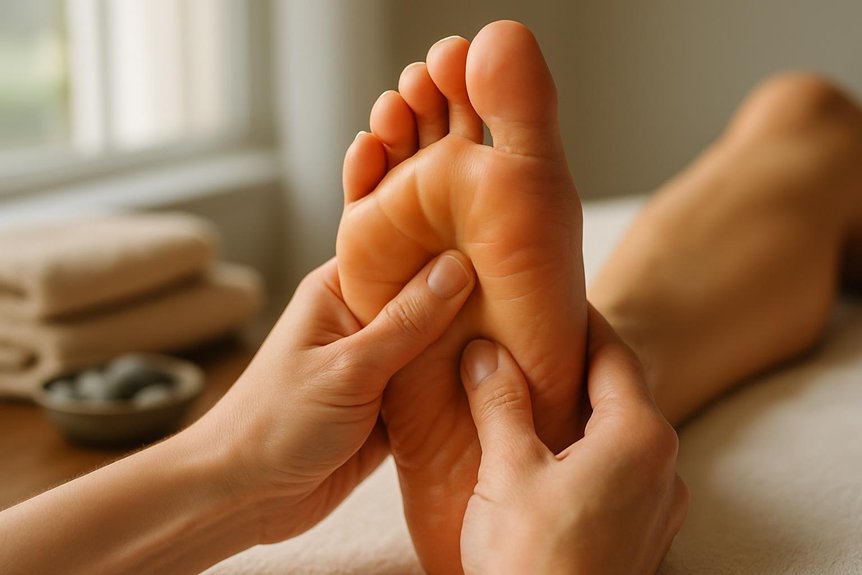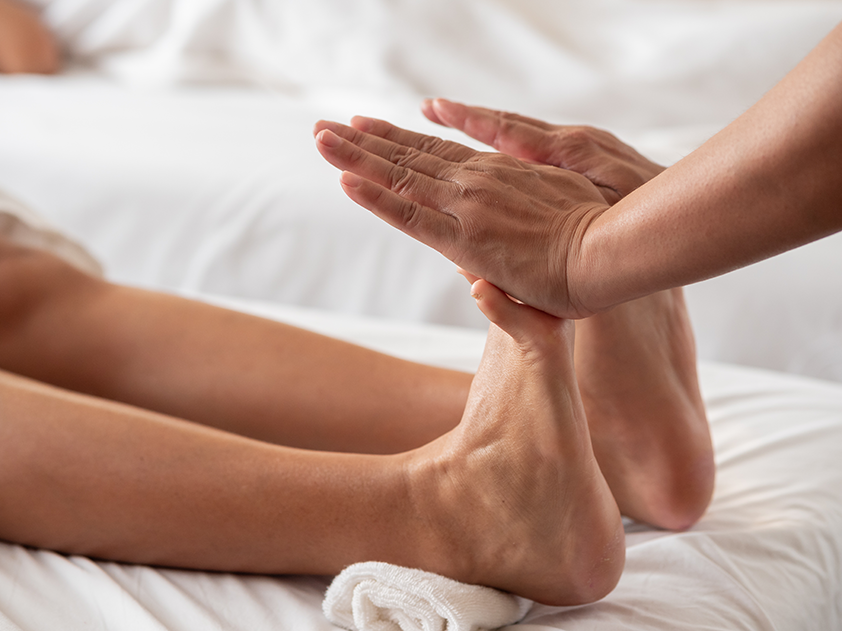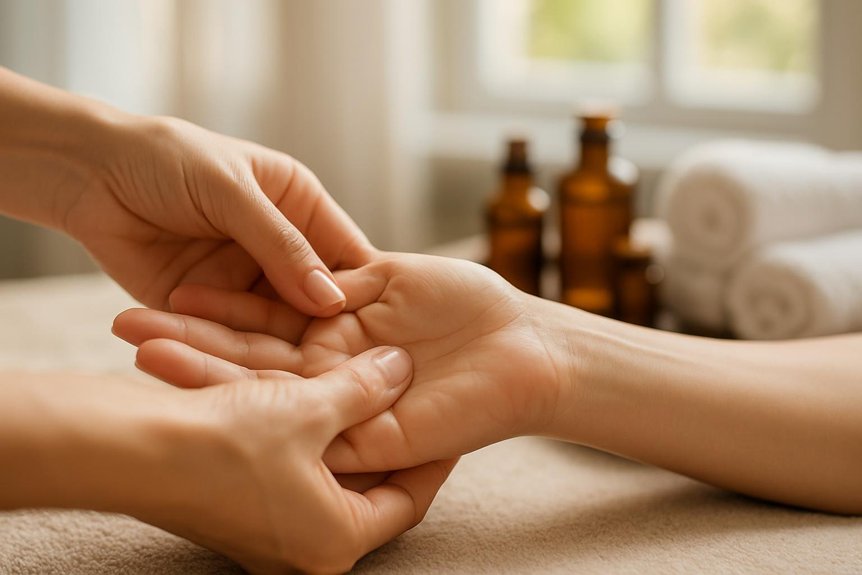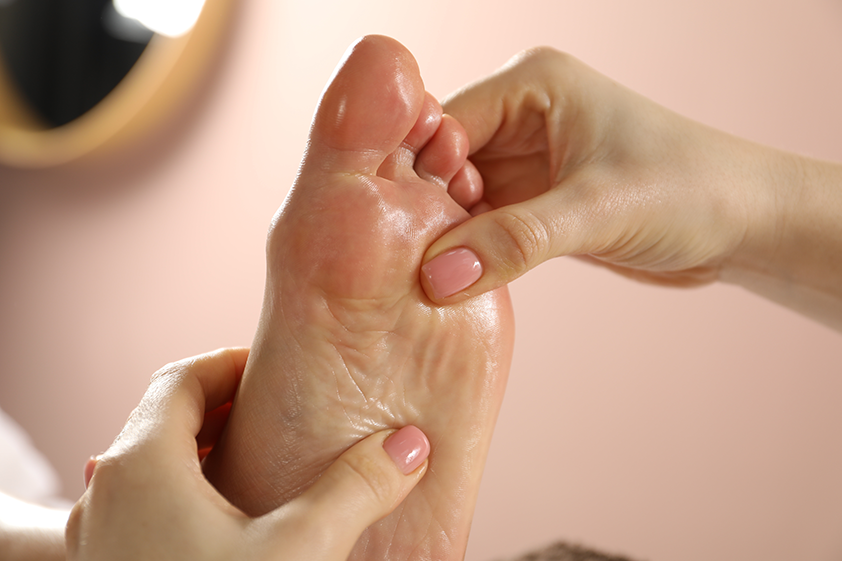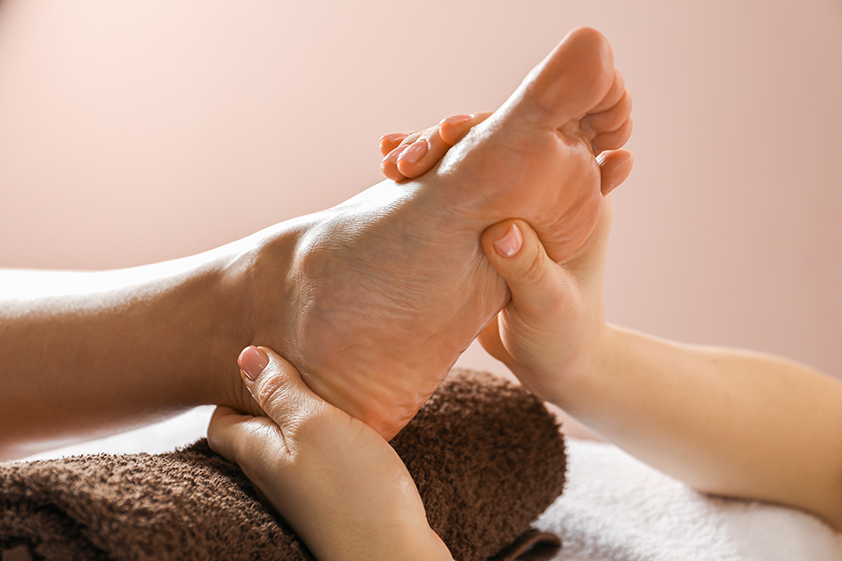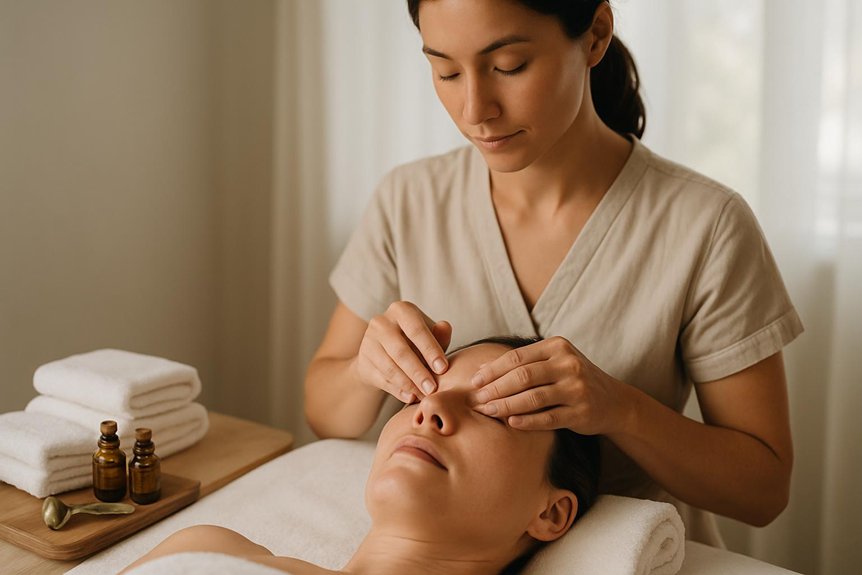Current scientific evidence indicates that zone therapy, when administered by a qualified practitioner using pregnancy-adapted techniques, does not cause miscarriage. Peer-reviewed studies show no causal link between properly applied zone therapy and pregnancy loss. Risk increases only with untrained providers or improper technique. Caution remains essential in high-risk pregnancies and specific medical conditions. Seeking trained therapists and adhering to evidence-based protocols further reduces any potential risk. An objective overview of best practices and safety considerations follows for expectant individuals.
Understanding Reflexology and Its Principles
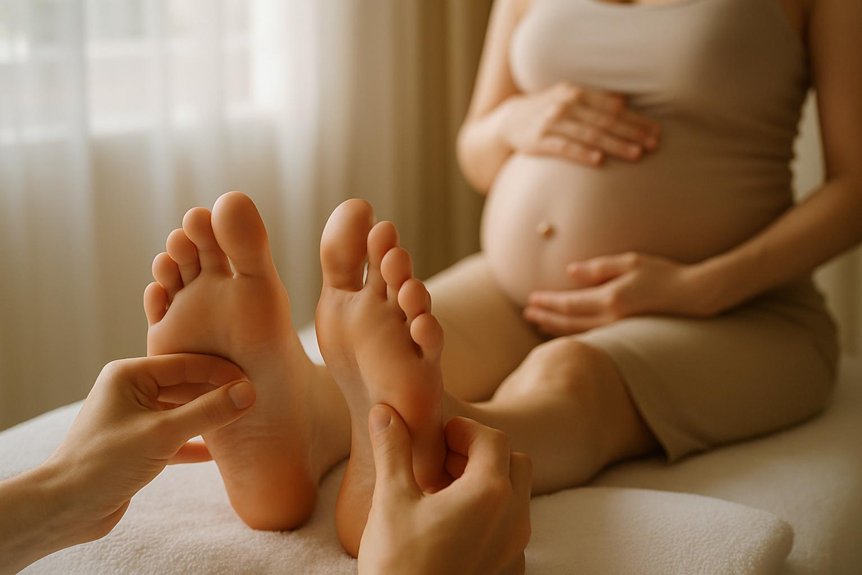
It is a complementary therapy based on the principle that specific points on the feet, hands, and ears correspond to different organs and systems within the body. Practitioners apply targeted pressure to these points, aiming to promote relaxation, alleviate stress, and support the body’s natural homeostatic mechanisms.
Clinical literature suggests zone therapy may modulate autonomic nervous system activity, potentially influencing physiological states such as circulation and endocrine function. However, the precise mechanisms remain under investigation, and robust evidence for specific therapeutic outcomes is limited.
At Spa & Massage, therapists use gentle, precise techniques tailored to individual needs, ensuring a calming and responsive experience. Clients often report enhanced wellbeing and relaxation, indicating zone therapy’s potential for holistic support when delivered in a professional, attentive setting. Discover the healing power of zone therapy through professionally guided sessions that emphasize both comfort and safety for clients.
Safety of Zone Therapy During Pregnancy
The application of zone therapy during pregnancy is generally regarded as safe when administered by qualified practitioners who are trained to recognise the unique physiological changes and contraindications associated with each trimester.
Clinical guidelines emphasise the importance of practitioner expertise to guarantee that techniques are appropriately tailored, avoiding areas or pressure points that could potentially stimulate uterine activity.
At Spa & Massage, therapists conduct thorough consultations to review medical history and current pregnancy status, ensuring a personalised and secure experience.
Evidence suggests that, when performed correctly, zone therapy may aid in alleviating common pregnancy discomforts such as oedema, back pain, and stress.
Nonetheless, caution is exercised throughout, particularly in high-risk pregnancies or the first trimester, and sessions are always adapted to individual needs and medical recommendations.
Common Myths About Zone Therapy and Miscarriage
There are persistent misconceptions regarding the safety of zone therapy during pregnancy, particularly its alleged association with miscarriage.
Current scientific evidence does not support claims that professionally administered zone therapy increases miscarriage risk when proper protocols are observed.
In clinical practice, adherence to safe zone therapy techniques and client-specific considerations remains essential to guarantee maternal well-being.
Misunderstandings About Pregnancy Safety
Although concerns about the safety of zone therapy during pregnancy are widespread, current clinical evidence does not support the claim that professionally administered zone therapy causes miscarriage.
Many misunderstandings stem from the confusion between general contraindications for massage and specific risks associated with zone therapy.
At Spa & Massage, therapists receive specialised training to differentiate safe pressure points from those best avoided in each trimester.
Misconceptions often arise from anecdotal reports or misinformation regarding the body’s sensitivity during pregnancy.
In a controlled, professional setting, zone therapy is tailored to the individual’s stage of pregnancy and overall health.
Open communication between client and practitioner further ensures a safe, supportive environment.
Understanding these distinctions can provide reassurance to expectant clients seeking holistic, gentle therapies for relaxation and wellbeing.
Scientific Evidence and Risks
Several peer-reviewed studies have evaluated the safety of zone therapy during pregnancy, with findings indicating no direct causal link between professionally administered zone therapy and miscarriage.
The current body of clinical evidence suggests that when zone therapy is conducted by qualified therapists using appropriate techniques, it does not increase the risk of pregnancy loss.
Reports of adverse outcomes are rare and often associated with untrained practitioners or improper application.
At Spa & Massage, therapists are trained to recognize and accommodate the unique physiological changes of pregnancy, ensuring a supportive and individualized approach.
While anecdotal concerns persist, scientific data do not substantiate the myth that zone therapy is inherently hazardous during gestation.
Caution remains essential, emphasizing the importance of professional expertise and open communication about any pregnancy-related concerns.
Safe Practices
How can it be practiced safely during pregnancy, given prevalent misconceptions about its risks? Clinical guidance supports that zone therapy, when administered by trained professionals, is generally safe during uncomplicated pregnancies.
At Spa & Massage, experienced therapists conduct thorough consultations, adapting pressure and techniques to avoid sensitive reflex points associated with the uterus and abdomen. Evidence indicates no direct causation between properly performed zone therapy and miscarriage; however, caution is exercised with clients presenting high-risk factors or pregnancy complications.
Therapists emphasize communication, monitoring for discomfort or adverse reactions, and individualized care plans. Clients are encouraged to disclose all relevant health information.
Safe zone therapy practice relies on professional expertise, clinical vigilance, and prioritizing maternal well-being—core principles upheld by Spa & Massage to foster reassurance and holistic support.
How Our Therapists Approach Pregnancy Zone Therapy
With a focus on safety and individualised care, Spa & Massage therapists conduct thorough assessments prior to initiating pregnancy zone therapy. Each client’s medical history, gestational stage, and presenting symptoms are carefully evaluated to determine suitability and optimise therapeutic outcomes.
Therapists employ gentle, modified zone therapy techniques, prioritising comfort and minimising pressure on specific reflex points to reduce any theoretical risk. Communication remains central throughout the session, fostering an environment where clients feel secure and understood.
Evidence-based guidelines inform practice at Spa & Massage, with therapists adhering to protocols designed to support maternal wellbeing. By tailoring each session to the unique needs of expectant mothers, Spa & Massage ensures that zone therapy is delivered within a framework of clinical vigilance and professional empathy, maximising safety and comfort.
Precautions and Contraindications for Expectant Mothers
A thorough understanding of contraindications and necessary precautions is essential when providing zone therapy to expectant mothers. Clinical evidence suggests that certain pressure points, particularly those linked to uterine stimulation, should be avoided during pregnancy, especially in the first trimester.
At Spa & Massage, therapists conduct comprehensive consultations to identify any history of high-risk pregnancy, preeclampsia, or recent bleeding, and will adjust treatment or defer sessions as appropriate.
It is contraindicated in cases of unexplained abdominal pain, active miscarriage, or preterm labour symptoms.
Clear communication, careful selection of techniques, and gentle pressure are prioritised to support maternal safety.
Clients are always encouraged to seek approval from their midwife or obstetrician.
This evidence-based approach ensures a nurturing environment while minimising potential risks during this sensitive time.
Wellness Tips for a Safe and Relaxing Pregnancy Massage
For ideal safety and efficacy, clients are encouraged to communicate specific pregnancy-related needs and concerns prior to treatment.
Selection of therapists with specialized training in prenatal massage, such as those at Spa & Massage, is essential to mitigate risks.
Proper positioning techniques, including the use of supportive cushions, are implemented to enhance maternal comfort and reduce physiological stress during the session.
Communicating Your Pregnancy Needs
Although each pregnancy presents unique physiological changes and considerations, clear communication regarding specific needs and concerns is fundamental to assure both safety and comfort during pregnancy massage.
At Spa & Massage, clients are encouraged to disclose gestational age, any complications, and areas of discomfort or sensitivity prior to treatment. Open dialogue enables therapists to adapt positioning, pressure, and techniques, thereby mitigating potential risks and enhancing therapeutic benefit.
Evidence supports that tailored approaches reduce anxiety and promote maternal wellbeing. Clients are advised to articulate their preferences regarding massage oils, room temperature, and session duration.
Throughout the session, continuous feedback ensures ongoing comfort and trust. This collaborative approach cultivates a supportive environment, where the client’s evolving needs are prioritised to promote a safe, intimate, and restorative experience.
Choosing Qualified Therapists
When selecting a therapist for pregnancy massage, clinical competency and specialised training are critical determinants of safety and efficacy. Practitioners should possess formal qualifications in prenatal massage and demonstrate ongoing professional development specific to pregnancy care.
At Spa & Massage, each therapist undergoes rigorous vetting to guarantee proficiency in evidence-based techniques and a thorough understanding of contraindications associated with each trimester.
Clients are encouraged to verify a therapist’s credentials and seek reassurance regarding their experience with expectant individuals. Establishing trust through open communication is essential; an empathetic, knowledgeable practitioner can foster relaxation and reassurance.
The therapeutic alliance is strengthened by attentive listening and personalised care, contributing to a nurturing environment. Prioritising these factors mitigates risk and supports a secure, restorative experience throughout pregnancy massage sessions.
Safe Positioning Techniques
With the physiological changes inherent to pregnancy, appropriate positioning during massage is critical to both maternal comfort and foetal safety.
Clinical guidelines recommend side-lying or semi-reclined positions, particularly after the first trimester, to reduce pressure on the inferior vena cava and prevent supine hypotensive syndrome.
At Spa & Massage, therapists utilize supportive bolsters and pillows to maintain spinal alignment and relieve musculoskeletal strain.
Adjustable positioning also accommodates individual anatomical variation and evolving needs as pregnancy progresses.
Direct abdominal pressure is strictly avoided, and care is taken to facilitate unobstructed breathing and ideal circulation.
These evidence-based modifications, combined with gentle communication throughout the session, ensure that each pregnancy massage is delivered with both compassion and clinical expertise, safeguarding the well-being of both mother and baby.
Conclusion
To conclude, current research suggests no direct causal connection between zone therapy and miscarriage when performed by licensed specialists. Significantly, a 2011 systematic review revealed that under 1% of documented adverse pregnancy outcomes were associated with complementary treatments like zone therapy. Nevertheless, it is crucial for pregnant women to consult practitioners with proper training, share any issues, and maintain transparent communication. Personalized, careful care safeguards both maternal health and a beneficial therapeutic experience throughout pregnancy.
